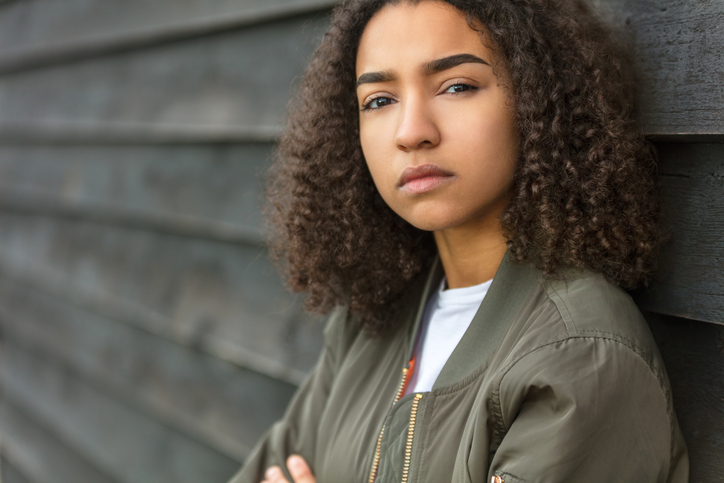Growing up, I was taught children were to be seen and not heard. This was typical in the ’70s and ’80s, I know. From the time I could talk, I was told you never disagree with an adult. Maybe those weren’t the exact words, but that’s what I heard when my strict military parents taught me how to behave. I know they did their best. After all, they were raised to follow even tougher rules.
But what that does to a child is erase any autonomy they have. It forces little humans not to think for themselves and to be agreeable at all costs. They learn to stuff their feeling and words when something happens that doesn’t feel right.
And while I’m not saying I allow my kids to talk back, I want something different for them than what I had as a little girl. I believe we’re capable of teaching kids the difference between being rude and standing up for themselves. It’s too important not to. They deserve the freedom to act and speak up when they’re uncomfortable.
I try my best to let my kids know that they are allowed to call out adults for certain behaviors. Hell, I tell them to kick, scream, and bite if their bodies get touched or they are spoken to in an inappropriate way.
Because I was taught not to speak up or question any adult, ever, I thought it meant under all circumstances. I was never told otherwise, and when you tell a child to be quiet or face consequences, they do what they’re told.
So when my second-grade teacher asked me if I was “retarded” in front of the whole class because I was too shy to read aloud on my first day at a new school, I didn’t say anything.
And when an older relative put his hands on me in a way that he shouldn’t have, I didn’t feel like I should do anything about it, so I endured the abuse for years. He was an adult, and I was a child. I’d been told to obey without talking back for so long, I figured no one would listen to me. Besides, I knew his story would hold more weight than mine.
I kissed and hugged people I didn’t want to. I was left alone with people that made me feel frightened. I watched teachers and friends’ parents do things that were wrong, and I didn’t say anything because I thought that’s just how the world worked.
Had I been taught otherwise, I would have found my confidence much earlier than I did. And in turn, who knows how it would have changed my life. Maybe I wouldn’t have put up with the things I did. Maybe I would have asked for what I wanted and set my standards higher.
You simply cannot tell a child they are never allowed to speak up and not expect it to damage to their voice. Not just the voice they speak with either. Their inner-voice becomes damaged, too—the one that tells them something feels off. The one that encourages them to do something in order to stay safe. The one that makes them who they are. The one that makes them feel alive and protected.
Yes, it might take more effort to teach your kids the difference between being disrespectful or defiant and speaking up for themselves or others, but our kids were worth it. I see so many mothers and fathers breaking the cycle of silence by encouraging their kids to lift their voices. And it’s going to bring much-needed change.
Photo: Getty








